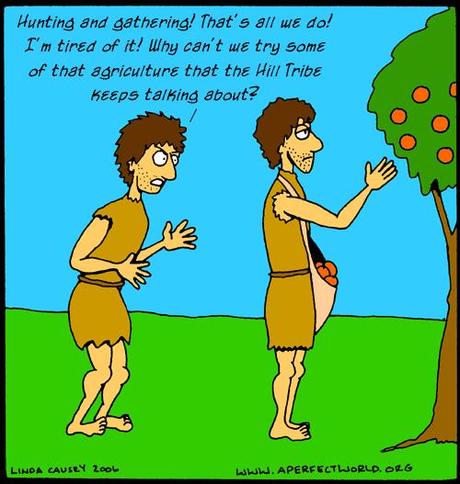A new study in Science investigated lethal aggression in 21 hunter-gatherer societies and concluded that most deaths were due to personal disputes rather than coalitionary aggression or “war.” This speaks to the larger and ongoing debate between those (such as Napoleon Chagnon) who think that humans are innately aggressive and war-prone, and those (such as R. Brian Ferguson) who contend that the human potential for aggression historically manifests as group violence or “war” only under certain structurally predictable conditions. While I think that Ferguson has the better supported and more nuanced position, even-handed accounts on this politically-charged issue are rare. A few years ago, I wrote an encyclopedia entry on “Conflict and Aggression” that essayed both sides of the issue and came down on neither. As is usually the case, there are some good points on both sides.
But this interests me less than some comments made by an author of the new study. Speaking to the BBC about the 21 hunter-gatherer societies from which the data was derived, Patrik Soderberg stated:
They are the kind of societies that don’t really rely on agriculture or domestic animals – they are primitive societies. About 12,000 years ago, we assume all humans were living in this kind of society, and that these kind of societies made up about for about 90% of our evolutionary path.
No, no, and no. Like so many others, Soderberg is working within the progressivist paradigm generated by cultural evolutionism. These societies were not arrested in time or development; they are not frozen relics of the ancestral past. Like all other peoples and societies, they continued to evolve. Their decision not to settle and take up agriculture does not make them “primitive.” We need to stop equating (and conflating) the material and technical with the cognitive and symbolic. Hunter-gatherer lifeways are at least as complex as agricultural lifeways.
Soderberg’s comment is yet another example of deeply entrenched gradistic thinking when it comes to the classification of cultures. We need to be thinking cladistically. All cultures are equally evolved, with some being more derived from ancestral conditions than others.


